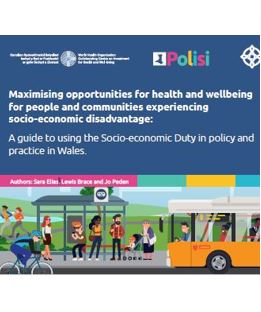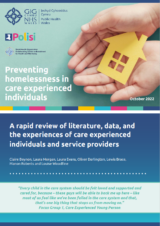
Maximising opportunities for health and wellbeing for people and communities experiencing socio-economic disadvantage: A guide to using the Socio-economic Duty in policy and practice in Wales
Achieving a More Equal Wales is one of the seven goals set out in the Well-being of Future Generations (Wales) Act 2015. The act provides public sector bodies in Wales with the five ways of working that will support us to make better decisions today for a More Equal Wales tomorrow. The Welsh Government’s Socio-economic Duty came into force in 2021 and aims to deliver better outcomes for those who experience socio-economic disadvantage.
The aim of this Guide is to help public bodies in Wales apply the Socio-economic Duty so that it can act as a powerful lever to improve the health outcomes for people and communities who experience socio-economic disadvantage. Public bodies have an opportunity to embed the Duty into their systems and approaches to ensure that the Duty makes a systematic difference and is not just a tick-box exercise.
An accompanying animation is also available via the links below.

